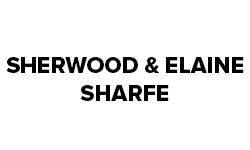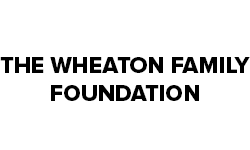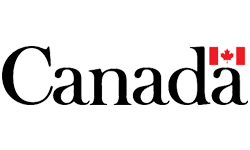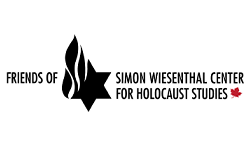Part C
Inquiry Resources
All websites were accessed November 2017
ROVER (Recommended Online Video Education Resources) is a video streaming service for Saskatchewan teachers and students in the PreK-12 education system. It is managed and maintained by the Saskatchewan Ministry of Education.
The ROVER service is video-on-demand which provides teachers and students with the convenience of immediate access to streamed, educational videos that support curriculum. ROVER videos are housed on a server located in a school or school division network so there are no bandwidth issues, resulting in better picture quality and continuous play of videos without pauses. The videos are intended for viewing on the streaming site and not for copying or downloading.
There are over 1000 videos on ROVER that can be accessed by teachers and students to enhance learning in the classroom. All the videos found on this site have been evaluated by educational professionals and recommended to support Saskatchewan’s K-12 curricula. The ROVER collection of videos continues to evolve as new videos are added annually and old videos expire.
Case Studies Resources
- Azrieli Foundation: https://azrielifoundation.org
- Fighting Antisemitism Together (FAST): http://www.fightingantisemitism.com/
- Voices into Action: http://www.voicesintoaction.ca
- Facing History and Ourselves: https://www.facinghistory.org/educator-resources
- Historical Thinking Project: http://historicalthinking.ca
- The Critical Thinking Consortium: https://tc2.ca
- Vancouver Holocaust Education Centre: http://www.vhec.org
- Burma and the Great Awakening – CBC News in Review (R.O.V.E.R.)
- Mandela (R.O.V.E.R.)
- Nelson Mandela (R.O.V.E.R.)
- North to Freedom: The Underground Railroad to Canada (R.O.V.E.R.)
- The Dark Side of Chocolate (R.O.V.E.R.)
- White Man’s Country (R.O.V.E.R.)
- Women’s Rights: Raising the Glass Ceiling (R.O.V.E.R.)
- https://web.archive.org/web/20170918222444/http://www.economicjustice.ca/
Possible Resources for Conflict Resolution Procedures:
- PLEA
- Truth and Reconciliation Commission: http://www.trc.ca
- Conflict Resolution Saskatchewan: http://conflictresolutionsk.ca
- Restorative Justice Online: http://restorativejustice.org
- Ontario Justice Education Network: http://ojen.ca/en/
- The Centre for Justice and Accountability: http://cja.org
- Creative Spirits Website (Australia): https://www.creativespirits.info
- SaskDebate.com
- Fundamental Freedoms: The Charter of Rights and Freedoms Video (R.O.V.E.R.)
- Egale – http://egale.ca/
- PFLAG – http://pflagcanada.ca
- Williams Social – variety of videos with factual information to support Social Sciences https://www.youtube.com/user/WilliamsSocial/featured
- National Interest – Video 3 – Self-Determination – https://www.youtube.com/watch?v=YXc5ANiKx7U
- National Interest Unit – Video 4 Indigenous Self-Determination http://www.youtube.com/watch?v=ePFfgSBtveI&index=3&list=UUeoDrN4bz0Xj5Arv3dv1djw
- Massey Lecture Series: A Short History of Progress by Ronald Wright: http://www.cbc.ca/radio/ideas/the-2004-cbc-massey-lectures-a-short-history-of-progress-1.2946872
- http://www.cbc.ca/player/play/2398911764
- http://www.cbc.ca/player/play/2398911796
- State of Multiculturalism in Canada: http://publications.gc.ca/collections/collection_2011/cic/Ci96-112-2010-eng.pdf
Cross Curricular Connections
“If students are to become lifelong learners, develop a sense of self and connection to others, and become engaged citizens and achieve the Cross-curricular Competencies and the outcomes for English language arts, students require meaningful, authentic contexts for learning. Students need many opportunities to explore questions and concerns about themselves and about the world.”
The Concentus Citizenship Education Resources provide teachers with a framework of inquires with which to further students’ explorations of their roles and responsibilities as Canadian citizens, in authentic contexts. These inquires are directly connected to Social Sciences (History, Native Studies, Social Studies) foundational outcomes and the broad goals of learning identified above. Specific connections to English Language Arts and Treaty Education are identified and suggested as starting points for teachers.
English Language Arts A30
Unit I – Canadian Perspectives: Distinct and Rich (Define the Individual, Negotiate the Community; Celebrate the Glorious, Acknowledge the Scandalous; Shift Centres, Blur Margins; Understand Beliefs, Initiate Action)
Themes/Context and Essential Questions
Define the Individual, Negotiate the Community
- What does it mean to be Canadian and what is our Canadian identity?
- Is being Canadian an individual or a community enterprise? What is the relationship between the individual and the community in Canada? How do individuals shape a community and the country, and how do the community and the country shape their citizens?
- What contributions have Canadian individuals (e.g., famous and not-so-famous; First Nations, Métis, Inuit, long-time Canadians, new Canadians) made to the character of the Canadian community? To the global community?
- How do Canadians navigate their local, regional, national, and global communities?
Celebrate the Glorious, Acknowledge the Scandalous
- Why is it important for Canadians to recognize, historically and currently, both the glorious and the scandalous aspects of Canadian life?
- How is glory defined and celebrated by Canadians? How is scandal defined and responded to by Canadians?
- What Canadian scandals have longevity and why? Why is acknowledgment of the scandalous difficult yet necessary?
- What is the basis of Canadian national pride? What is Canada’s international image in the global community?
Shift Centres, Blur Margins
- How can we ensure that all perspectives and voices in Canada are seen, listened to, read, and celebrated?
- What perspectives have been dominant or privileged in Canada? Why?
- What perspectives have been and are marginalized? Why?
- Why is equitable representation of voices and all perspectives important for every Canadian and for Canada?
- How are the multicultural perspectives in Canada captured and represented by its artists and authors?
Understand Beliefs, Initiate Action
- How can Canadians and their communities with varying and divergent beliefs act ethically, cooperatively, and respectfully?
- How can the individual or collective beliefs of Canadians influence Canada’s actions?
- Do Canadian citizens share collective principles that define them as Canadians?
- How do Canadians facilitate understanding of one another’s beliefs?
Unit II: Canadian Perspectives: Diverse and Dynamic* (Natural and Constructed; Psychological and Physical; Historical and Contemporary; Personal and Societal)
Natural and Constructed
- What are Canadians’ attitudes to and concerns about the natural and constructed (e.g., political, virtual, linguistic) landscapes in which they live, and how do they express and act upon those attitudes and concerns?
- How have Canada’s natural and constructed landscapes influenced Canadians?
- How have natural and constructed landscapes deeply influenced Canadian artists, speakers, and authors and their texts?
- How has your region’s landscape been represented in Canadian texts–visual, oral, print, and multimedia? Why is it important to have one’s physical–natural and constructed–landscapes represented in the texts one encounters?
Psychological and Physical
- How does Canada’s physical landscape influence Canadians’ relationships and interactions with self and each other?
- How are the landscapes of mind and heart as important as the physical landscapes of Canada?
- What is revealed about the psychological landscapes of Canadians in visual, oral, print, and multimedia texts?
- How has the representation of the physical landscape changed throughout Canada’s history? What do the changes reveal about the Canadian psyche?
Historical and Contemporary
- How have Canada’s historical landscapes influenced its contemporary landscapes?
- What are similarities and differences between historical and contemporary landscapes? What factors account for these similarities and differences?
- How have historical and contemporary First Nations, Métis, and Inuit landscapes shaped our national landscape? What landscapes do the First Nations, Métis, and Inuit peoples, authors, and artists present?
- How do we honour the histories of the many peoples who live in Canada while we forge landscapes that are contemporary and emerging?
Personal and Societal
- What is the relationship between the individual and the state in Canada?
- What is the role of the state in Canada? Where does the ultimate power reside in Canada–in the individual or in the society?
- What societal issues concern Canadians? How have societal issues changed over the course of our nationhood?
- How do Canadians balance the personal landscape with the societal landscape? How do we balance self-preservation with concern for others?
English Language Arts B30
Unit I: The Search for Self* *(Sense of Self; Ideals; Joy and Inspiration; Doubt and Fear)
*International, including indigenous, texts only
Sense of Self
- Who and what are we?
- What does it mean to be a human being? What is human nature?
- Do we see ourselves the same way that others see us? How does being the member of a particular group affect our identity and sense of self?
- What is our purpose for being?
Ideals
- Are there universal ideals for which we all strive?
- How ought human beings to behave? Is desirable behaviour the same in all cultures? In all communities?
- What is admirable? What is not so admirable? Does everyone agree?
- Why do our actions sometimes fall short of our ideals?
Joy and Inspiration
- What brings us joy and inspiration in life?
- What do optimistic and pessimistic mean? How do they apply to one’s view of life?
- What is the “good life”? Is it the same for everyone?
- What is a happy life? What is the meaning and nature of happiness? Does happiness mean different things to different people? How might we achieve happiness in life? How might we find personal fulfillment?
Doubt and Fear
- What doubts and fears do we have?
- What special challenges do doubts and fears bring to an individual? What are ways of overcoming doubts and fears? How can having doubts and fears be an advantage?
- How do people react to tragedy or loss in their lives? What strategies do people use to deal with tragedy and loss? How do people respond to or deal with despair? What are people’s sources of strength? How can strength and healing arise out of tragedy and loss?
- Is it natural to feel anger and hatred sometimes? Why? How do we navigate and deal with those emotions?
English Language Arts B30
Unit II–The Social Experience (Dealing with Universal Issues; Ambition, Power, and the Common Good; Social Criticism; Addressing the Issues)
Dealing with Universal Issues
- What is “truth” and what is “justice”?
- How do we define “truth”? What are important truths in life? How do we find truth?
- How do we tell right from wrong? What challenges result from varying views of “right” and “wrong”? What are the rights of all?
- How do we define “justice”? Why is justice often hard to achieve? Is justice fair? Infallible? Why does justice sometimes “sting”? How do we remedy injustice? Are there situations in which it is more just to treat people differently than to treat them the same?
Ambition, Power, and the Common Good
- What is the nature of ambition and power?
- What gives a person status? Is status achieved the same way in all societies? Within a society? Why is status important?
- How do ambition and power drive us? How do they challenge us? How do individuals acquire real and perceived power? How do people enact power? How are power and privilege aligned? How does lack of power or imbalance in power affect individuals, groups, and societies?
- What is meant by “the common good”? Who decides what the common good is? Is the common good best for every individual in a society? How do we attend to the common good while respecting individual goals and values?
Social Criticism
- What is social criticism?
- What is the purpose of social criticism?
- What is conformity? What is resistance? What is meant by “the status quo”? What is rebellion? Do different people define these differently? How are conformity, resistance, and rebellion manifested differently in different societies?
- Why do some individuals or groups challenge the system while others abide by it? What is political protest? How do societies treat resistance? Is resistance risky? Why or why not?
Addressing the Issues
- How can we make the world a better place?
- Do all people tackle causes in their lifetimes? Why or why not? What causes might your generation undertake?
- What do people do when faced with a decision between advancing a cause and doing what they believe is right?
- Are there situations in which individuals might challenge authority? What are some responsible ways of challenging authority?
Treaty Education
- TR12: Examine one’s position regarding the importance of the treaty relationship for the social, cultural and economic prosperity of all Saskatchewan and Canadian people.
- SI12: Investigate the values and beliefs of self, family, community, and society in relation to the importance of honouring the Spirit and Intent of treaties.
- HC12: Examine how treaties within contemporary society impact on individual’s lives.
- TPP12: Represent personal understanding of the concept, We Are All Treaty People.
© 2023 Concentus Citizenship Education Foundation Inc. All Rights Reserved.









